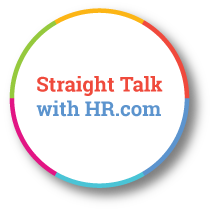Worker Classification, Or Misclassification, In The Gig Era
Exclusive interview with Olivia Cicchini, Legal Specialist, Peninsula Canada
Posted on 05-31-2023, Read Time: 5 Min
Share:

Highlights:
- Worker classification depends on the employment relationship, not just job titles.
- Challenges ahead: Classifying gig economy workers and the need for legislative clarity.
- Focus on understanding employment nature and avoiding costly misclassification errors.
When companies fail to classify workers properly, they are potentially inviting huge fines from tax authorities and the possibility of class-action lawsuits. In September 2022, Uber coughed up $8.4 million to settle a class-action lawsuit with California drivers, who claimed they were misclassified as independent contractors, rather than employees. This is not the first time that Uber has been embroiled in a misclassification case. Similarly, Nike is now facing potential tax fines of more than $530 million for misclassifying thousands of its temporary office workers. Uber and Nike’s cases are not isolated ones. Microsoft, Time Warner Inc., FedEx, etc., have been caught in this mess in the past.
Employers continue to be misclassified as independent contractors. Why does this happen? Can worker misclassification be prevented?
 |
In an exclusive interview with HR.com, Olivia Cicchini, Legal Specialist, Peninsula Canada, shares her insights into why companies continue to misclassify workers in the age of stringent rules and regulations and what are the challenges employers will face while classifying workers in the future, among others. |
Excerpts from the interview:
Q: Uber's $8.4 million fine in 2022 and Nike's potential $530m fine for misclassifying workers in 2023, among others - why do companies continue to misclassify workers?
Olivia: While no one can know for sure, it can generally be assumed that companies misclassify workers because they are either unsure of their legal obligations or are purposefully engaging in this behavior for cost-saving benefits. When an employee is incorrectly classified as an independent contractor, companies avoid paying certain taxes and benefits and have less of a legal responsibility toward their staff.Q: Were these cases preventable? How?
Olivia: These cases can be prevented by consulting with a qualified legal professional during the hiring process. By asking specific questions to get to the root of the employment relationship, employers can better understand whether the worker will be considered an employee or not.Q: What are the takeaways for employers from such cases?
Olivia: Employers should look at these cases as cautionary tales of what not to do when classifying workers. While companies may experience short-term cost-saving benefits from misclassifying staff, they may be opening themselves up to liability. If the company does encounter a misclassification claim from a worker (or workers), it can mean public scrutiny, retroactive payments, punitive damages, and more. Classifying workers correctly from the start is always the best practice.Q: What are the common mistakes employers commit while classifying workers?
Olivia: A common mistake employers encounter while classifying workers is that the workers' classification depends on the nature of the employment relationship, not their title. For example, some companies will call an employee an independent contract believing that this will be enough. However, despite what a worker is classified as in their employment contract, it is the worker’s risk of profit and loss, ability to subcontract work, protection from disciplinary action, and other qualifying factors that determine their status as an employee or independent contractor.Q: With the proliferation of the gig economy, what are the challenges employers will face while classifying workers in the future?
Olivia: Starting with Ontario in 2022, governments in Canada are beginning to implement amendments to their employment standards legislation to provide protections for gig economy workers which in turn will help sort out the classification issues. Gig economy workers were typically classified as independent contractors. Once the new legislation takes effect, the workers will be afforded certain minimum standards and protections under employment standards legislation, forcing employers to reconsider that classification.Q: What changes must lawmakers bring in to deal with worker misclassification more stringently?
Olivia: Taking gig economy workers as an example, the aforementioned legislation push is in progress but risks introducing confusion into the classification process before offering up clear categories. Generally, this may be more about ensuring employers understand the nature of the employment relationship and that they should not always be looking for cost-saving benefits when misclassification itself can end up being a costly mistake.Error: No such template "/CustomCode/topleader/category"!

